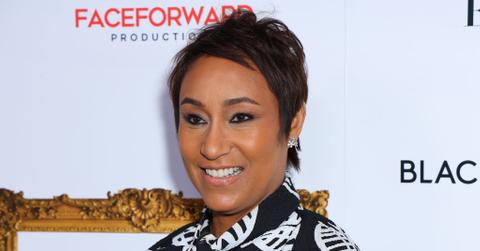
Desirée Rogers’ Vision for Black Opal Beauty
By Francis MbuguaSep. 7 2023, Updated 12:34 a.m. ET
Desirée Rogers has worn many hats in her illustrious business and public service career. As the White House Social Secretary in the Obama Administration, Rogers is credited with revamping the White House’s perception into a “People’s House.” She championed diversity and implemented social programs such as the White House Poetry Slam and the Historian Dinner.
She has also served as the CEO of Johnson Publishing Company, Fashion Fair, Jet, and Ebony’s parent company. Rogers was pivotal in helping the company turn around its fortunes and set it on a growth path. She helped revamp the magazines’ online presence, improving their digital readership and following. She also helped Johnson Publishing Company secure funding.
In 2019, she partnered with her friend Cheryl Mayberry McKissack to purchase Black Opal Beauty, a beauty company established in 1994 to cater to the needs of Black consumers. She had tried to buy the Chicago-based company for over two years before closing the deal.
After the purchase, she set out to revamp and modernize the brand while providing the target market with high-quality products.
And as you can tell, she is uniquely qualified to revamp brands with plateauing fortunes, such as Black Opal Beauty.
So, What’s her Vision For BLK/OPL?
After closing the deal, she laid out her vision for the company in various interviews. She envisioned growth by increasing the market presence of BLK/OPL products and the number of products they offer.
An Increased Presence in the Market
Rogers was introduced to the brand via professional makeup artists, telling DuJour that she “first noticed the brand in makeup artist kits when I was having my makeup professionally done.” Professional makeup artists love the brand as it was “developed exclusively to tend to the specific skincare and makeup needs of this group.”
However, the presence of Black Opal Products wasn’t as ubiquitous as you would think.
As such, Rogers intended to change this by “spearheading a modern elevation and e-commerce expansion of the 25-year-old cosmetics brand.”
An Increased and Diversified Product Line
In her interview with DuJour, Rogers noted that they intend to increase their product line. “We will also add shades to our existing formulations that consumers have requested and feature highly pigmented colors that pop on the darkest of skin tones,” she revealed.
Part of her growth plan was to expand their skincare products and increase their offerings in the men’s care category.
How Is Rogers’ Ownership and Stewardship of BLK/OPL Impacting the Beauty Industry
Rogers’ (and McKissack’s) efforts are having an industry-wide impact on the makeup industry. Finding high-quality, melanin-friendly skincare and makeup products for women of color was a hassle, even in the case of BLK/OPL. However, increasing and diversifying the supply of BLK/OPL products while keeping prices affordable has made it easier for women of color to find products that cater to their melanin-rich skin.
Finally, we have to talk about the issue of ownership. For decades, the Black community has not been represented in the ownership of companies making makeup and skincare products. Speaking with Une Femme, she explained how little the beauty industry benefits the black community.
“Black Americans tend to skew heavily in purchasing beauty products — and there’s a lot of history behind that, some good, some not as good,” she noted. “What’s alarming is that in this country, we’re spending a little under $7 billion, yet the revenue that’s going to Black-founded and -owned beauty companies is only about 2.5 percent.”
She continued to explain her vision of increased economic benefit for black-owned beauty products companies, noting, “We’d like to see that 2.5 percent doubled in five years. That’s part of our vision, because you’ll see that investment going back into the community — for example, Fashion Fair has a scholarship at Spelman College.”
Finally, she concludes, “We all need to be thinking about how we can increase the wealth profile of Black people and close those gaps that we’re seeing.”
By purchasing the Black Opal Beauty company, Rodgers has played her part in changing these statistics and enhancing black women’s ownership of this enormous industry.

